ChatGPT, Bard, and all AI tools are trained on existing work, and quote that work without the originators being paid or cited in most cases — and publishers say this can't continue.
After years of Machine Learning being trained on existing published works, AI tools like ChatGPT and Bard have suddenly become mainstream. Even in their claimed beta or early versions, AI tools are being integrated into Microsoft 365, Adobe Firefly, and more.
According to the Wall Street Journal, publishers have been investigating how their content has been used in training AI tools, and examining legal options. Citing sources familiar with the meetings, the newspaper says that publishing trade group News Media Alliance wants members to be paid.
"We have valuable content that's being used constantly to generate revenue for others off the backs of investments that we make," Danielle Coffey, of News Media Alliance told the publication, "that requires real human work, and that has to be compensated."
News Corp's CEO, Robert Thomson, said at a recent investor conference that the company has "started discussions with a certain party who shall remain nameless."
"Clearly, they are using proprietary content — there should be, obviously, some compensation for that," he continued.
AI tools search the internet for the basis of their responses to user requests, and the Wall Street Journal points out there is a "fair use" legal provision that might cover some of this.
"We've done a lot with fair use," said Sam Altman, CEO of OpenAI, the company that created ChatGPT. "[However, we're] willing to pay a lot for very high-quality data in certain domains [such as science]."
When Microsoft's implementation of AI returns a response, it includes links to the sources it used. Google's Bard, however, makes at most a text reference to a source, rather than links or citations.
Google Assistant vice president Sissie Hsiao told the Wall Street Journal that the company "is deeply committed in supporting a healthy and vibrant content ecosystem." When AI tools are integrated into search, Google "will be welcoming conversations with stakeholders."
Microsoft has already been making payments to publishers for use of material on MSN, but reportedly those do not cover AI. Microsoft has not commented.
Google has similar deals with firms including News Corp, for a service called Google News Showcase, but again the payments do not include AI use.
Separately, when Adobe announced its Firefly AI tool, the company said that it was planning to have payment systems for artists before the app comes out of beta.
 William Gallagher
William Gallagher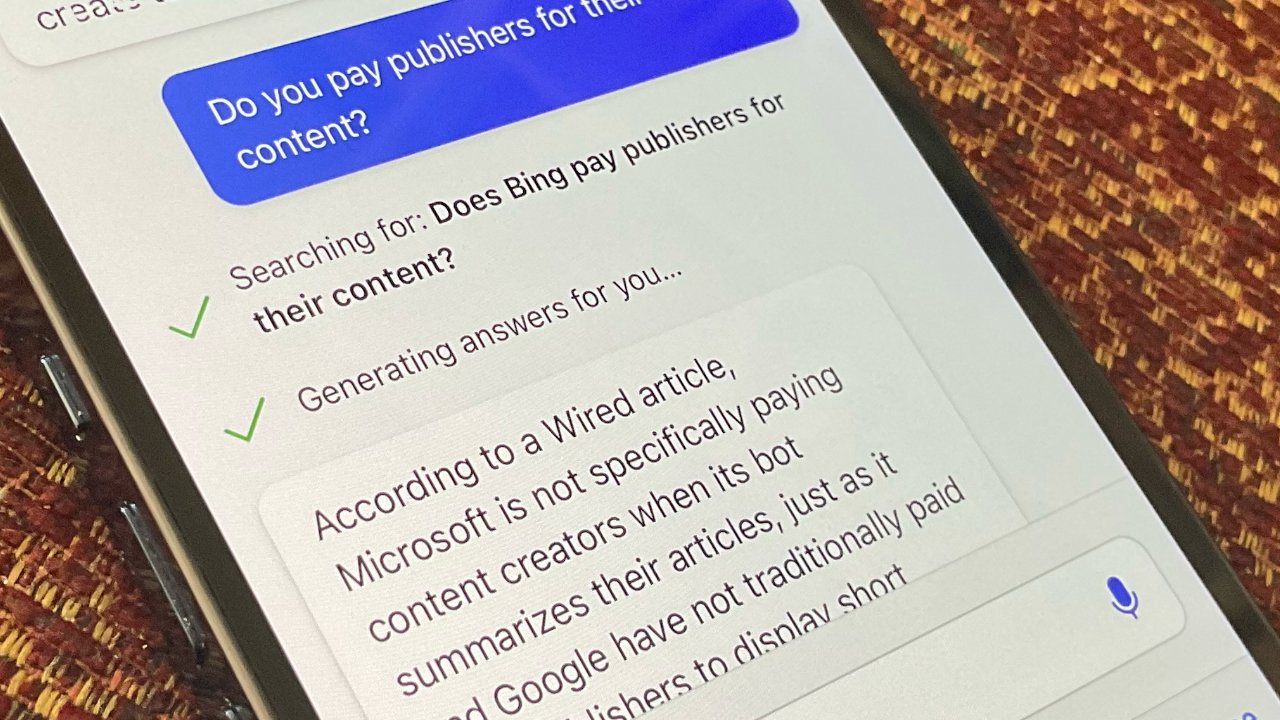

-m.jpg)





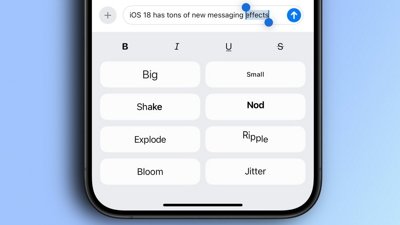
 Oliver Haslam
Oliver Haslam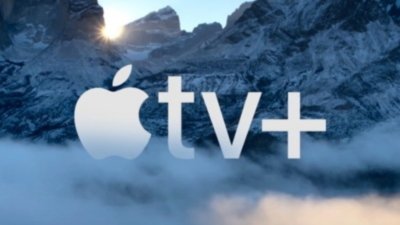
 Amber Neely
Amber Neely
 Marko Zivkovic and Mike Wuerthele
Marko Zivkovic and Mike Wuerthele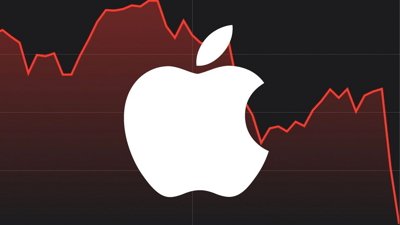

 Andrew Orr
Andrew Orr
 Malcolm Owen
Malcolm Owen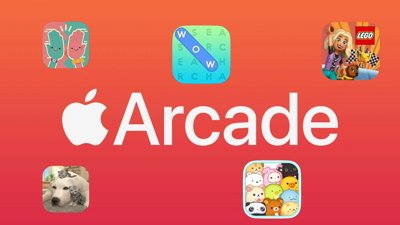











20 Comments
Human artists also learn/train from other artists work. Should they also compensate all the artists whose work they have seen?
Just a thought.
Influences are in most cases clearly evident in human artists’ work in all disciplines and at all levels of competence, if you know what to look for. As Picasso said, “good artists borrow, great artists steal.” Just look at his work, and then look at the work of Georges Braque and Julio Gonzalez, whose work Picasso “stole” in this sense. There’s no shortage of examples in music and other art forms too. At this point, the most sophisticated automated systems can create works that are at least as original as what most humans are coming up with (which is a low bar), but of course there are humans pulling the strings here, designing the algorithms and training them, so you still easily argue that it’s just a more complex and technology-intensive form of human creation.